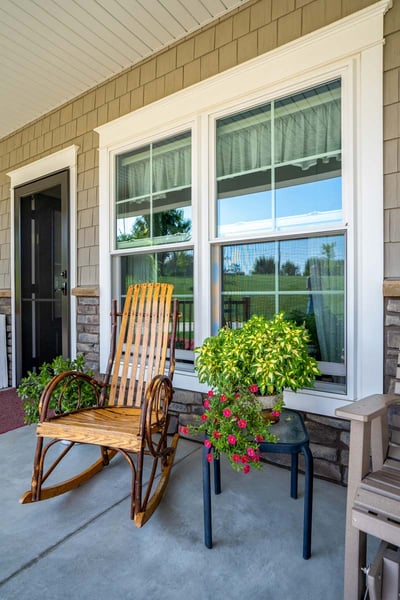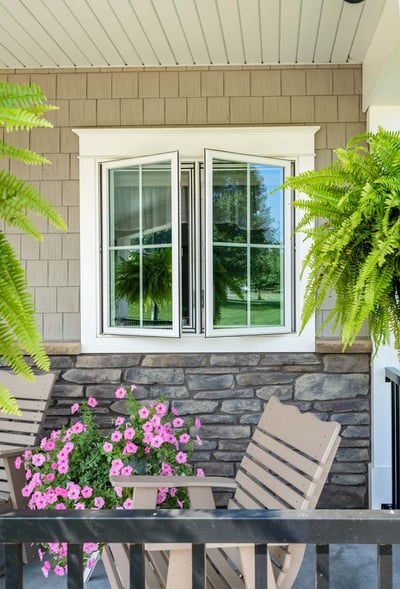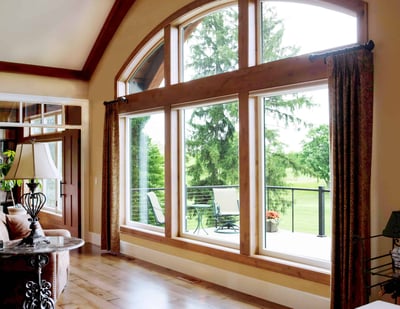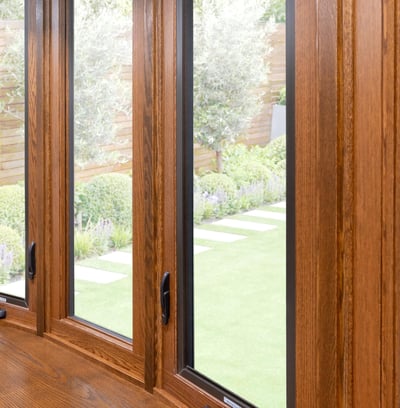A Guide to Residential Window Types: Features, Benefits, and More
When it comes to selecting windows for your home, the choices can be overwhelming. Each type of window offers its own unique features and benefits, catering to different preferences and needs. In this guide, we'll explore the various types of residential windows, including Double Hung, Slider, Casement & Awning, Hopper, Picture, Garden, Bay & Bow windows, highlighting their features and advantages.
Double Hung Windows:
Double hung windows are perhaps the most traditional and widely used type of window. They consist of two sashes that slide vertically within the frame. The key features and benefits of double-hung windows include:
- Versatility: They complement various architectural styles, from classic to contemporary.
- Easy Maintenance: Both sashes can tilt inward, allowing for easy cleaning from inside the house.
- Improved Ventilation: You can adjust the top and bottom sashes independently to control airflow.

Slider Windows:
Slider windows, also known as gliding windows, operate horizontally along a track. They offer a sleek and modern appearance with several advantages:
- Space-Saving: Ideal for rooms with limited space since they don't protrude outward or inward when opened.
- Easy Operation: Smooth sliding mechanism makes them effortless to open and close.
- Enhanced Views: Wide expanses of glass provide unobstructed views of the outdoors.
Casement & Awning Windows:
Casement windows are hinged at the side and open outward with the help of a crank handle, while awning windows are hinged at the top and open outward. These types of windows offer several benefits:
- Excellent Ventilation: When open, casement and awning windows can catch breezes and direct them into the home.
- Tight Seal: When closed, they create a tight seal against the frame, enhancing energy efficiency.
- Enhanced Security: Their hook-shaped locks provide added security against intruders.

Hopper Windows:
Hopper windows are hinged at the bottom and open inward. They are commonly installed in basements, bathrooms, and utility areas. Key features include:
- Improved Ventilation: Despite their smaller size, hopper windows can effectively ventilate lower levels of the home.
- Weather Resistance: When closed, they create a tight seal, keeping out drafts and moisture.
- Privacy: Positioned high on the wall, they offer privacy while still allowing natural light to enter.
Picture Windows:
Picture windows are fixed windows that do not open. They are designed to frame picturesque views and let in abundant natural light. Their benefits include:
- Panoramic Views: Picture windows offer expansive views of the surroundings, making them ideal for living rooms and dining areas.
- Energy Efficiency: Since they don't open, there are no drafts or air leaks, contributing to better energy efficiency.
- Architectural Appeal: Picture windows serve as focal points, adding aesthetic value to the home's exterior and interior.

Garden Windows:
Garden windows project outward from the home and feature a glass shelf for displaying plants or decorative items. Their advantages include:
- Indoor Gardening: Ideal for growing herbs, flowers, or small plants year-round, even in limited space.
- Natural Light: They allow ample sunlight to enter the room, brightening up indoor spaces.
- Architectural Interest: Garden windows add charm and character to kitchens, breakfast nooks, or any area where they are installed.
Bay & Bow Windows:
Bay and bow windows protrude outward from the home's exterior, creating a dramatic architectural feature. They offer several benefits:
- Expanded Space: Bay and bow windows create additional interior space, perfect for window seats, reading nooks, or decorative displays.
- Increased Natural Light: Their expansive design allows sunlight to enter from multiple angles, brightening up the room.
- Curb Appeal: Bay and bow windows enhance the home's curb appeal, adding visual interest and elegance to the facade.

In conclusion, the choice of residential windows depends on various factors such as architectural style, functionality, and personal preference. Whether you prioritize energy efficiency, ventilation, or aesthetic appeal, there's a window type to suit your needs. By understanding the features and benefits of each type, you can make an informed decision that enhances both the beauty and functionality of your home.
.png?width=153&height=69&name=Untitled%20design%20(30).png)
Reimagine Your Remodel
LOCK IN YOUR PRICING TODAY WITH A FREE INSPECTION AND QUOTE
March 6, 2024
.png?width=175&height=79&name=Untitled%20design%20(30).png)
.png?width=125&height=125&name=Untitled%20design%20(24).png)
.png?width=125&height=56&name=Untitled%20design%20(30).png)